The Sweetest Dark Read online
The Sweetest Dark is a work of fiction. Names, characters, places, and incidents are the products of the author’s imagination or are used fictitiously. Any resemblance to actual events, locales, or persons, living or dead, is entirely coincidental.
Copyright © 2013 by Five Rabbits, Inc.
All rights reserved.
Published in the United States by Bantam Books, an imprint of The Random House Publishing Group, a division of Random House, Inc., New York.
BANTAM BOOKS and the rooster colophon are registered trademarks of Random House, Inc.
Library of Congress Cataloging-in-Publication Data
Abé, Shana.
The sweetest dark : a novel / Shana Abé.
p. cm.
eISBN: 978-0-345-53171-1
[1. Supernatural—Fiction. 2. Magic—Fiction. 3. Boarding schools—Fiction. 4. Schools—Fiction. 5. Great Britain—History—George V, 1910–1936—Fiction.] I. Title.
PZ7.A158935Sw 2012
[Fic]—dc23 2011050411
Cover design : Eileen Carey
Cover image : © Cavan Images / Gettyimages
www.bantamdell.com
v3.1
Contents
Cover
Title Page
Copyright
Prologue
Chapter 1
Chapter 2
Chapter 3
Chapter 4
Chapter 5
Chapter 6
Chapter 7
Chapter 8
Chapter 9
Chapter 10
Chapter 11
Chapter 12
Chapter 13
Chapter 14
Chapter 15
Chapter 16
Chapter 17
Chapter 18
Chapter 19
Chapter 20
Chapter 21
Chapter 22
Chapter 23
Chapter 24
Chapter 25
Chapter 26
Chapter 27
Chapter 28
Chapter 29
Chapter 30
Chapter 31
Epilogue
Dedication
Acknowledgments
About the Author
Prologue
Are your eyes truly open?
Are you one of the few who have truly seen?
Then perhaps you already know about the hidden realm tucked inside your own.
It shares the same sky as yours, the same mountains and creeks and hills. It has the same constellations slanting across the heavens, the same roads cutting across the earth. The same towns and nations. Food, drink, fashion, language: everything seemingly the same.
But it’s not.
The hidden realm presents a false front to fool you, to make you trust what you never should. Because there—right there living beside you—are monsters of ferocious beauty, ribbony creatures formed of smoke and color and claws. Monsters you’ve been taught to think are only myth.
They are not.
They stroll your streets, and dine in your restaurants, and wrap themselves in furs and silk and jewels. When they wish it, their faces resemble yours. Their lips smile as yours do; their skin gleams ebony or russet or milky white.
They use wings to slice through the stars at night. They’ll murmur your name and shake your hand and you can’t look away, because once they hold your eyes and touch your flesh, you belong to them, whether you like it or not.
They are the drákon.
And this is the story of one of the last of them.
Chapter 1
These are a few of the secrets kept from me until my sixteenth year:
That planets had spun and turned themselves out of their orbits to aid in my conception. That magma from the heart of the earth had speared through choking rock channels, stealing carbon and diamonds for me, jetting high to fall and die upon the surface of the world in a celebration of lava and flame.
That the moon had slowed for my birth, and the sun had blinked, and the stars had created a celestial new chorus from my name.
When I was a child, everyone believed that I was an ordinary human girl. Even I believed it, which shows you how little I knew.
I looked almost like a regular girl, though. Maybe one who was paler than normal, a little thinner, a touch more swift to react to sudden sounds or bright lights.
My eyes are gray. Not the gray of a sullen sky or sea but the unlikely lavender-gray of a nimbus surrounding a winter moon, colors both opaque and translucent at once.
My hair seems brown. It’s such a light brown that it’s almost the color of nothing, but that’s a trick, one I can’t control. Depending upon the hour of the day and the aspect of the clouds, my hair shines any color from fawn to pale pink to gold.
In the month of February, in the year 1909, I had been found wandering aimlessly along the streets of one of the most massive cities ever built by man: London. I was starving, alone, and ten years of age.
I’d been noticed first by a team of pickpockets—but there was nothing on me to steal, not a farthing or even a modest silver chain—then by a pair of prostitutes, who only eyed me up and down. Finally a tinker showed me some mercy, guiding me toward a constable before melting off down an alleyway.
I could not speak. I had no words to describe my situation, only my stare, which most of the grown men at the station avoided within seconds. I think they found it far less uncomfortable to study the barren walls of the station house or gaze out the grimy windows.
They gave me a blanket, an eel pie from a vendor, and a mug of gin. I claimed a spot on the floor behind the main desk and fell asleep.
Eleven hours later, since no one in the parish of St. Giles had come forward to claim me, I was handed over to the local orphanage, a miserable well of scrubbed faces and forsaken souls.
St. Giles was a knot of blighted streets and crumbling buildings. The relentless odor of gin and beer mingled with the constant stench of rotting garbage, and the unwelcome offspring there were as common as dirt. As the fifth anonymous child abandoned to the Blisshaven Foundling Home so far that year, I was assigned the name Eleanore, surname Jones. Gradually—no one even noticed when or how—Eleanore evolved into Lora, which became the name I answered to.
Lora Jones.
Speech returned in stages. Little words first, popping past my lips. Pie. Blood. Comet.
Then bigger ones. Steamship. Regina. Aria, gemstone, field gun, museum.
To the astonishment of the proprietors of Blisshaven, I shaped every word with the sort of precise, lilting intonation that indicated I might have just stepped foot from the king’s court—or so I overheard them mutter. I couldn’t explain it; I couldn’t prevent it. That was simply how I spoke. And for all my elegant words, I never once told anyone where I’d come from or mentioned any second of my life before the day the tinker had found me.
I didn’t remember. I really didn’t.
Yet there were some things that did come back to me, a few basic things. Arithmetic, reading, writing—someone from the misty veil of my past had taught me that much. I would chase the discarded sheets of the dailies that blew into the courtyard of the orphanage, clutching each page close to my face, devouring the printed words as eagerly as if they were that delicious hot pie and cold gin I’d once consumed on the floor of the constables’ station.
Like all the orphans crowding the Home, I felt certain that I did not belong where I was. That someone, somewhere, was surely searching for me, because I was special.
Unlike all the rest of the orphans, I was right.
• • •
I began to hear things.
Elusive noises, pretty sounds no one else seemed to perceive. As I grew older, they blossomed into ful
l melodies. Snippets of song followed me about, trailing my every step. Even when I cupped my hands hard over my ears, I couldn’t stop the notes from seeping around my fingers, tickling the inside of my head.
That would drive anyone barmy, wouldn’t it?
At the age of twelve, I realized the songs were coming from the high stone wall surrounding the Home. From the metal rings and keys of the matrons who walked the halls with their nightsticks. From the pale, blazing diamond fixed in the stickpin the Home’s director, Mr. H. W. Forrester, wore in his necktie every single day.
From even the distant stars.
They weren’t the worst of it, though. The worst was the voice. The one that seemed centered not inside my head but instead just exactly inside my heart.
It was cunning and fiendish, whispering the maddest things: That it was natural that gemstones would sing to me. That it was good to hate the Home, with its dull walls and dull boiled turnips and dull spiteful girls who openly scorned me, who tripped me in the hallways and dipped my plaits into ink pots during our few hours of schooling.
The heart-voice would say things like, Smite them. Tear them apart. I won’t let you alone until you are who you are.
And I wanted to. I was trapped and friendless, and if I’d had the slightest notion of how to smite anything, I bloody well might have.
I grew up considered by one and all to be peculiar at best, aloof at least, and most likely destined for the streets the day I turned seventeen, since even the factories had standards for hiring.
None of them knew that each black night, long after they themselves had curled into their dreams, I would steal from my bed to perch upon the sill of the window close by, my no-color hair a slippery curtain against my back. I would press my palms flat against the glass and gaze down at the cobblestone courtyard below, four long stories below, and puzzle over the fiend in my heart.
Every night, the fiend would whisper, Open the window. Jump.
So finally I did.
Chapter 2
The Moor Gate Institute for Socially Afflicted Youth
Case File No. 039985–27b
Subject: Eleanore Jones, Aged 16 years (approx.; actual DOB unknown)
Date: August 28, 1914
Date Admitted: October 21, 1913
Assoc. Dr. Julius M. Sotheby, assigned.
Subject is physically hale child of unknown descent, average height, underweight. Complexion, hair color, eye color: Fair.
Subject admitted Moor Gate via Blisshaven Foundling Home. See: Mr. Henry Forrester (director). Subject physically, verbally combative in Home; Melancholy; Antisocial; Complained of constant, nonexistent songs/voices; Unusual sensitivity to tastes, colors, smells.
Diagnosis: Behavior consistent with adolescent Feminine Hysteria.
“Tell me, Eleanore. How are we feeling this morning?”
“I’m well.”
“I’m pleased to hear it. How was breakfast?”
“It was fine.”
“Mrs. Pearl informs me you finished all your eggs.”
“Yes.”
“And … how did they taste?”
“They were fine.”
“Powdered, were they?”
“I … suppose.”
“You couldn’t tell?”
“No.”
Appetite showed marked improvement in past six months. No weight gain as yet. Subject no longer leaves meals unfinished.
“And how did you sleep?”
“Well.”
“Any dreams?”
“No.”
“Really, Eleanore? None?”
“I …”
“Mrs. McLeod left a note here for me. It says she heard you moaning last night on her rounds. Tossing about. You don’t remember that?”
“I—I might have dreamed. I’m sorry, I really don’t recall.”
“That’s all right. That’s just fine. We don’t remember every single dream, do we?”
Subject initiates and maintains eye contact. Visible trembling of hands first witnessed in October ’13 vanished. Hair combed and plaited. Shirtwaist neat.
“I understand you’ve been paying particular attention to another girl here. Hattie Boyd. Eleanore? Is that right?”
“Yes, sir. Hattie’s nice.”
“She certainly doesn’t seem to enjoy the company of anyone else. Intentionally speechless. Afflicted with unpredictable spells of rage or sudden screaming. Does she ever speak to you?”
“No.”
“No words whatsoever?”
“No.”
“Why, then, are you kind to her? What is it precisely that makes her nice?”
“Hattie … needs a friend. I understand that. So I try to be her friend.”
“I see.”
Subject demonstrates evidence of reemerging Feminine Virtues: Compassion. Docility. Tenderness.
“Tell me about the songs, Eleanore.”
“I beg your pardon?”
“The songs you hear. Are they still haunting you?”
“No, sir. I don’t hear them any longer.”
“Truly? That seems peculiar, don’t you think? When you first arrived here, you insisted they were everywhere. In the stones of the walls, in the nails in the doors. The iron bars of the cells. Do you recall that?”
“Yes. But …”
“Yes, Eleanore?”
“I’m sorry. They simply aren’t here any longer.”
“Are you quite sure about that?”
“Yes. Quite sure. I suppose it was rather as if … they grew fainter and fainter during my time here. During the treatments. And now they’re no longer here at all, Doctor.”
“Excellent.”
Subject’s marked improvement in all Areas of Concern indicates treatment course successful. Recommend discharge in one month back to Blisshaven Home. In the interim, continue treatment course: Daily ice bath submergence, mercury tonics, biweekly harnessing/electrical shock.
“Doctor Sotheby?”
“Yes?”
“Is it true, what the nurses are saying? About the war?”
“What is it you think they’re saying?”
“That now that we’ve declared against the kaiser, we’ll be under attack. That he’ll send his aeroplanes straight to London, and his armies right after.”
“It’s really none of your concern. You need only concentrate on getting well.”
“But—a war—”
“This war, child, will be concluded in a matter of months. His Majesty will see to that. The Germans will never have a chance to reach us here, neither by air nor land nor sea. We are safe as can be. I assure you, there is absolutely nothing for you to worry about.”
Eight Months Later
Victoria station was cavernous, a fairy-work construction of wrought iron and steel and great canopies of glass, with locomotives that heaved and puffed into their slots by the platforms like groaning, overstuffed beasts. I’d never been in a place so big before. I’d never seen so many people amassed together at once.
I stood with my single suitcase clutched in one hand and my ticket in the other. Men and women in fine coats and hats pushed by me as if I was invisible—which, in a way, I was.
I had a coat, but it was rather obviously too small. Once it had been a decent black worsted, but that was several owners past. By the time it had been given to me, the dye had faded to more of a drabby charcoal, and the cuffs were frankly tattered. Sometimes, were I caught in the rain with it without an oilskin, my skirts would darken and my wrists would end up stained with bracelets of gray.
I had a hat, too, plucked straight from the donation bin. It was straw, a summer hat even though summer was very much done, and so plain that it couldn’t be termed in fashion or out. A hairpin stabbed through it into the thickness of my chignon, a pin that never stopped humming against my scalp. The buffed steel ribs stretching across the glass ceiling above me sang a deeper bass, great reverberating ba-ba-BUM-bum sounds that were nearly drowned out by—
The canopy revealed a murky sky. It was not yet noon, but the sun had been swallowed by London’s ever-present miasma of fog and soot. A sheet of paper pasted to a pillar nearby declared in hasty lettering that the gas lines had been damaged in last night’s bombing, and there was no gas to burn in the jets along the walls. Everyone around me was wrapped in shadow. We were ghosts in the steamy stink of the station.
The East Smithfield Ladies’ Society for Relief—that’s what their banner read—had set up a table of free biscuits and hot tea for all the departing soldiers jamming the platforms. A quartet of pink-cheeked women was pouring cups as quickly as possible from the urns. Tommies surrounded them, laughing and shifting their rifles awkwardly from shoulder to shoulder as they drank.
The tea smelled stale. The biscuits, however—oh, the biscuits were nearly still warm and iced with maple sugar. I wished devoutly that one of the Tommies would offer me one, but not a single man returned my stare.
A young boy to my left was sobbing. He had hugged both arms around his mother’s knees, refusing to let go.
“Now, Bobby,” she was pleading with him over and over, her hat dribbling faux blackberries and her skirts all bunched up by his grip. “Now, Bobby, please.”
He wasn’t the only child in tears. There were scores of them, probably hundreds, all over the station, everyone wan and sniffling and red-eyed, their parents—if they’d come; sometimes it was clearly only the nannies—forcing smiles and making promises that no one in their right mind would believe, no matter how young.
“It’s just for a while, sweetheart. Just a short while. You remember your auntie’s farm, don’t you? All the fine ponies and sheep? Of course you remember—”
“—and I’ll come get you soon. As soon as I can, me and your grandmum both. Soon as I can—”
“—Because you’ll be safest there, that’s why. I’ve made up my mind about this, Sally, you know that I have, so do stop arguing with me about it; you’ve given me the migraine. I need you to get on that train this instant—”
“—it’ll be over in no time. Right? Right? We know that. Buck up, son, there you are! Milk a few cows for a few weeks, and there you are. Home again quick as a wink, m’boy, I swear.”

 The Second Mrs. Astor
The Second Mrs. Astor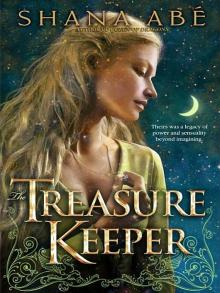 The Treasure Keeper
The Treasure Keeper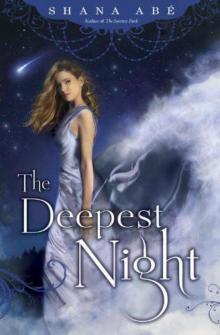 The Deepest Night
The Deepest Night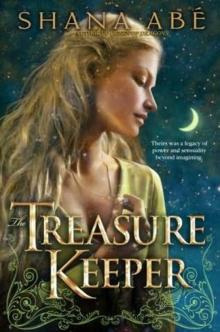 The Treasure Keeper d-4
The Treasure Keeper d-4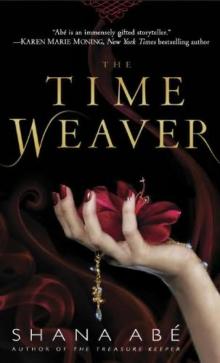 The Time Weaver d-5
The Time Weaver d-5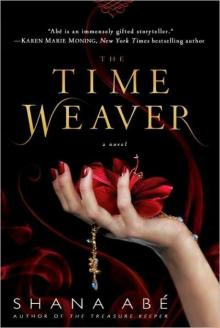 The Time Weaver
The Time Weaver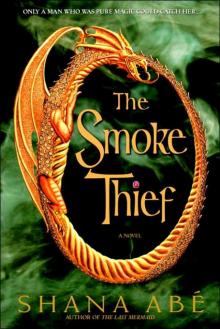 The Smoke Thief
The Smoke Thief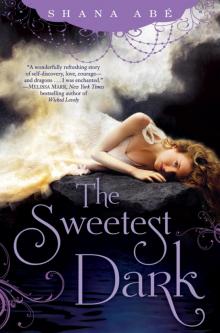 The Sweetest Dark
The Sweetest Dark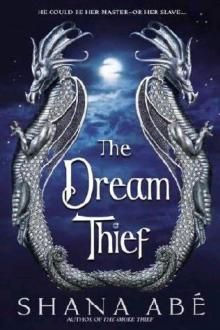 The Dream Thief
The Dream Thief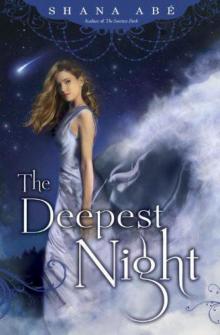 The Deepest Night tsd-2
The Deepest Night tsd-2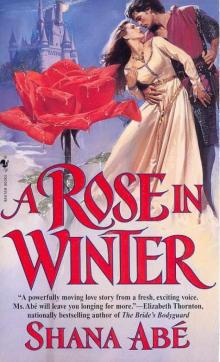 A Rose in Winter
A Rose in Winter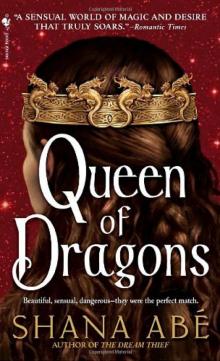 Queen of Dragons d-3
Queen of Dragons d-3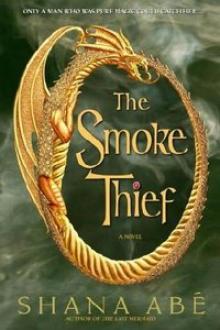 The Smoke Thief d-1
The Smoke Thief d-1